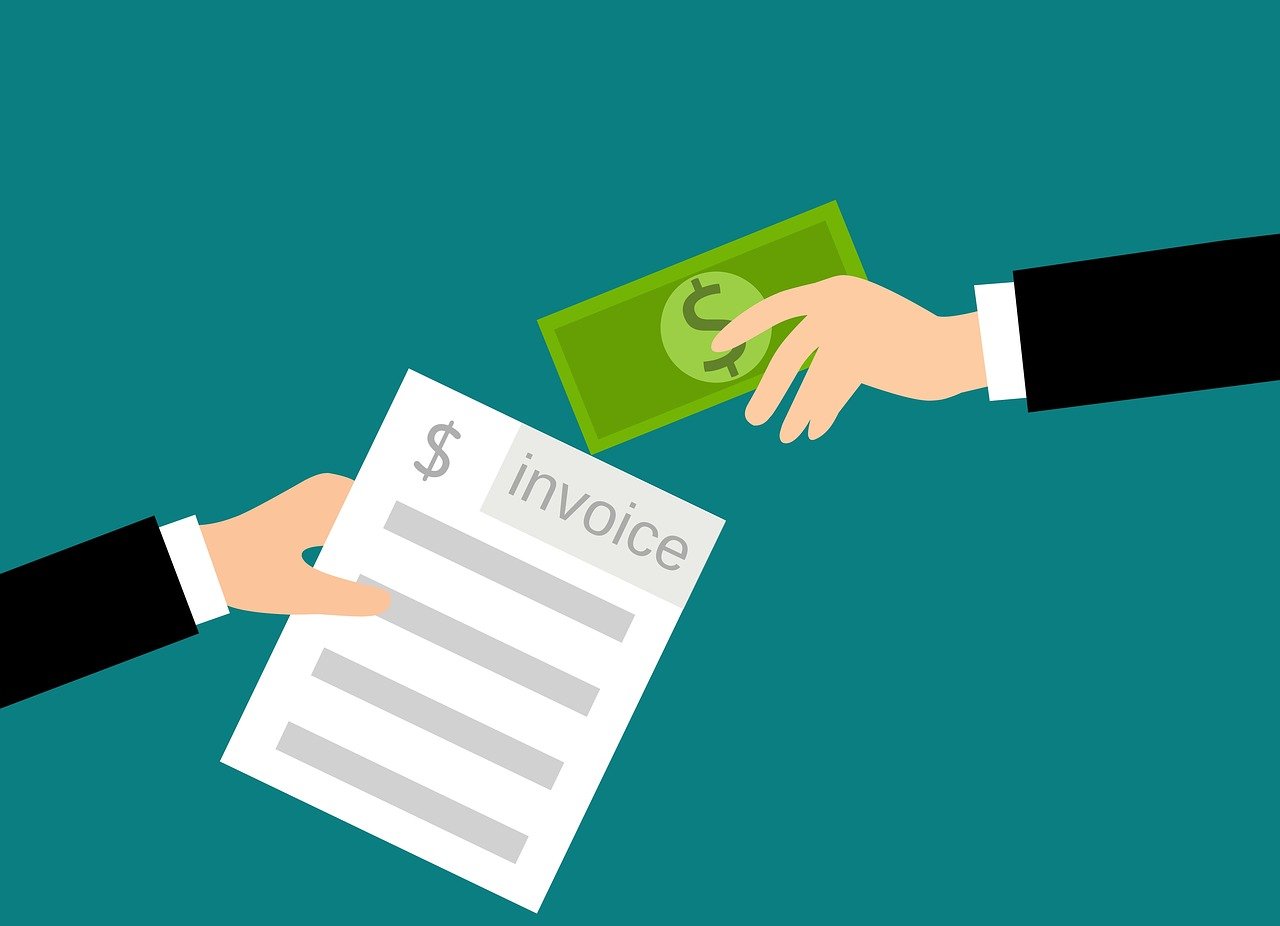Looking for a reliable family law attorney in Woods Cross, Utah? Look no further! Our team of experienced attorneys is here to provide you with the guidance and reassurance you need during difficult legal situations. From divorce and child custody to adoption and property division, we understand the common legal concerns that families face. With our expertise and personalized approach, we aim to create emotional connections with our clients and provide them with the support they deserve. Feel free to reach out to us today at [Phone number] for more information and take the first step towards resolving your family law matters.

What is Family Law?
Family law is a legal field that deals with matters relating to families and domestic relationships. It covers a wide range of issues that can arise within a family, including marriage, divorce, child custody, adoption, and domestic violence. Family law is designed to protect the rights and interests of individuals within a family unit and ensure that all parties involved are treated fairly and given equal opportunities.
Definition of Family Law
Family law encompasses a set of laws and regulations that govern family relationships, including marriage, divorce, child custody, and support. It is focused on resolving disputes and providing legal remedies for matters that arise within families. The goal of family law is to maintain stability and promote the well-being of individuals and their family members.
Importance of Family Law
Family law plays a crucial role in society by providing a legal framework for resolving conflicts and ensuring the rights of individuals are protected. It helps individuals navigate complex legal procedures, understand their rights and responsibilities, and achieve fair and just outcomes in various family-related matters. Without family law, individuals would be left vulnerable and without proper legal recourse or protection.
Types of Cases Covered by Family Law
Family law covers a wide range of cases, each with its own unique set of issues and legal considerations. Some of the common cases covered by family law include:
- Divorce: Family law handles the process of legally ending a marriage, dividing assets and debts, and determining child custody and support arrangements. It ensures that both parties are treated fairly and that the best interests of any children involved are prioritized.
- Child Custody and Visitation: Family law addresses disputes regarding the custody and visitation rights of children. It considers factors such as the child’s best interests, the parents’ ability to care for the child, and any history of abuse or neglect.
- Child Support: Family law determines the financial support that one parent must provide to the custodial parent for the upbringing and well-being of the child. It ensures that children are adequately supported and their basic needs are met.
- Adoption: Family law governs the legal process of adopting a child, ensuring that the rights and welfare of all parties involved are protected. It involves screening potential adoptive parents, terminating the parental rights of birth parents, and finalizing the adoption in court.
- Domestic Violence and Restraining Orders: Family law provides legal protection for victims of domestic violence through restraining orders. It helps victims obtain legal remedies to prevent further abuse and ensures their safety and well-being.
Choosing the Right Family Law Attorney
When dealing with family law matters, it is important to have the assistance of an experienced and knowledgeable family law attorney. They can provide valuable guidance, represent your interests, and help you navigate the legal process effectively.
Importance of Having a Family Law Attorney
Having a family law attorney by your side is crucial for several reasons. First and foremost, they have a deep understanding of family law and can provide you with expert advice tailored to your specific situation. They will ensure that your rights are protected, and they will work tirelessly to achieve the best possible outcome for your case.
Additionally, family law attorneys are well-versed in the legal procedures and requirements involved in family law cases. They can help you navigate complex paperwork, meet deadlines, and advocate on your behalf in court. Their expertise and experience are invaluable when it comes to achieving a favorable resolution in your case.
Factors to Consider When Choosing a Family Law Attorney
Choosing the right family law attorney is a crucial step in ensuring the success of your case. Here are some important factors to consider when making your decision:
-
Experience: Look for an attorney with significant experience in handling family law cases. Their familiarity with the legal system and their ability to navigate complex issues will work to your advantage.
-
Expertise: Family law covers a wide range of issues. Choose an attorney who specializes in the specific area of your case, whether it be divorce, child custody, or adoption. Their specialized knowledge will greatly benefit your case.
-
Reputation: Research the attorney’s reputation and track record. Read reviews, check their website, and ask for references. A reputable attorney with a history of successful cases is more likely to achieve a positive outcome for you.
-
Communication: Effective communication is vital in any legal case. Find an attorney who communicates clearly, promptly, and regularly. They should be accessible to answer your questions and address your concerns throughout the process.
-
Compatibility: Building a strong working relationship with your attorney is essential. Seek an attorney who makes you feel comfortable, listens to your concerns, and understands your goals. A strong attorney-client relationship will ease the stress of the legal process.
By considering these factors and selecting the right family law attorney, you can ensure that you have an experienced, knowledgeable, and dedicated professional by your side.
Experience and Expertise
When it comes to family law, the experience and expertise of your attorney are crucial factors that can significantly impact the outcome of your case.
Importance of Attorney’s Experience and Expertise in Family Law
Family law is a complex and ever-changing area of law. Having an attorney with substantial experience in family law is essential for several reasons. First, an experienced attorney will have a deep understanding of the legal processes, nuances, and strategies specific to family law cases. They have likely handled cases similar to yours in the past and can draw on their previous experiences to effectively represent you.
Furthermore, an experienced attorney is familiar with local family courts, judges, and opposing attorneys. This knowledge can give them an invaluable advantage when navigating the legal system. They know what arguments are persuasive, what tactics to use, and how to negotiate effectively on your behalf.
Specific Areas of Expertise in Family Law
Family law encompasses a broad range of issues, and different attorneys may specialize in specific areas of family law. Some common areas of expertise in family law include:
-
Divorce: Attorneys specializing in divorce cases have extensive knowledge of the legal requirements and procedures involved in ending a marriage. They can help you navigate the complexities of property division, child custody, and spousal support.
-
Child Custody: Attorneys specializing in child custody cases focus on protecting the best interests of the child and helping parents negotiate custody arrangements. They understand the factors considered by the court when making custody decisions and can develop a strong legal strategy to advocate for your rights as a parent.
-
Adoption: Attorneys specializing in adoption cases have expertise in the legal requirements and procedures for adopting a child. They can guide you through the complex paperwork, ensure compliance with adoption laws, and represent you in court to finalize the adoption.
-
Domestic Violence: Attorneys specializing in domestic violence cases are experienced in assisting victims in obtaining restraining orders and navigating the legal system to ensure their safety. They provide compassionate support, help gather evidence, and represent victims in court.
Choosing an attorney with specific expertise in your particular family law issue can make a significant difference in the outcome of your case. They will have in-depth knowledge of the relevant laws and precedents, allowing them to provide you with proficient representation and achieve the best possible outcome.
Understanding the Legal Process
Navigating the legal process in family law cases can be confusing and overwhelming. It is important to have a basic understanding of the steps involved to ensure that your rights are protected and that you can advocate for your best interests.
Overview of the Legal Process in Family Law Cases
Family law cases generally follow a standard legal process, although the specific details may vary depending on the jurisdiction and the nature of the case. Here is an overview of the typical legal process in family law cases:
-
Consultation: The process typically begins with an initial consultation with a family law attorney. During this meeting, you will discuss your case, provide necessary documents and information, and learn about your legal rights and options.
-
Mediation or Negotiation: In many family law cases, parties are encouraged to resolve their disputes through mediation or negotiation, giving them an opportunity to reach a mutually agreeable resolution outside of court. Mediation involves a neutral third party who facilitates communication and helps the parties find common ground. Negotiation involves discussions and compromise between the parties and their attorneys.
-
Court Filing: If mediation or negotiation fails to reach a resolution, the next step is to file a petition or complaint with the appropriate court. This formally initiates the legal process and notifies the other party that legal action has been taken.
-
Discovery: During the discovery phase, both parties exchange relevant information and documents related to the case. This may include financial records, witness statements, and expert reports. The goal is to gather all relevant evidence to support your case.
-
Settlement Conference or Pretrial Hearing: Before proceeding to trial, the court may schedule a settlement conference or pretrial hearing. This is an opportunity for both parties and their attorneys to discuss the case and attempt to reach a resolution. If a settlement is reached, the case can be resolved without going to trial.
-
Trial: If no settlement is reached, the case will proceed to trial. Each party presents their case to the judge, who will evaluate the evidence and make a final decision. The trial may involve testimony from witnesses, presentation of evidence, and cross-examination.
-
Judgment: After considering the evidence and arguments presented, the judge will issue a judgment, outlining the court’s decision. This judgment is legally binding and determines the outcome of the case.
It is important to note that the legal process can be lengthy and complex. Having a family law attorney by your side throughout this process is essential to ensure that your rights are protected, and your best interests are represented.
Steps Involved in Resolving Family Law Issues
Resolving family law issues involves a series of steps that essentially follow the legal process. However, it is important to understand that not all cases will go through every step. The specific steps involved will depend on the nature of the case and the willingness of the parties to reach a resolution. Here are the key steps involved in resolving family law issues:
-
Consulting with an Attorney: The first step is to consult with a family law attorney. They will evaluate your case, provide legal advice, and guide you through the process.
-
Gathering Information: To effectively advocate for your rights, it is important to gather all relevant information and documents related to the case. This may include financial records, medical records, witness statements, and any other evidence that supports your position.
-
Mediation or Negotiation: In many cases, parties are encouraged to participate in mediation or negotiation to reach an agreement outside of court. This gives both parties an opportunity to discuss their concerns, explore options, and find a mutually satisfactory resolution.
-
Filing the Necessary Documents: If mediation or negotiation fails, the next step is to file the necessary legal documents, such as a petition or complaint, with the court. This officially initiates the legal process.
-
Discovery: During the discovery phase, both parties exchange information and documents related to the case. This allows each party to understand the other’s position and gather evidence to support their own case.
-
Settlement Conference or Pretrial Hearing: The court may schedule a settlement conference or pretrial hearing to encourage the parties to reach a resolution. This is an opportunity for the parties and their attorneys to discuss the case, negotiate, and possibly reach a settlement.
-
Trial: If a settlement cannot be reached, the case will proceed to trial. Both parties will present their case to the judge, who will evaluate the evidence and make a final decision.
-
Implementation of Court Orders: Once a judgment or order is issued, both parties are legally obligated to comply with the terms outlined in the order. This may involve the division of assets, payment of child support, or visitation schedules.
-
Enforcement or Modification: In some cases, it may become necessary to enforce or modify existing court orders. This may involve seeking enforcement of child support payments or modifying custody arrangements due to changed circumstances.
By understanding and following these steps, you can navigate the legal process more effectively and ensure the best possible outcome for your family law case.

Protecting Your Rights
When facing family law issues, protecting your rights is of utmost importance. Family law cases can be emotionally charged and have long-lasting effects on your life and the lives of your loved ones. Having an attorney who understands the intricacies of family law can help safeguard your rights and ensure that your interests are protected throughout the legal process.
Importance of Protecting Your Rights in Family Law Cases
Protecting your rights in family law cases is vital for several reasons. First and foremost, family law issues often involve sensitive and personal matters, such as custody of your children, division of assets, and financial support. Failing to protect your rights can result in unfair outcomes and significant emotional, financial, and personal consequences.
By actively protecting your rights, you can ensure that your voice is heard, your interests are represented, and your future is safeguarded. This includes advocating for fair child custody arrangements, fighting for an equitable division of assets, and ensuring that your financial obligations are reasonable and sustainable.
How an Attorney Can Help Protect Your Rights
Having a family law attorney by your side is essential in protecting your rights throughout the legal process. Here’s how they can help:
-
Legal Expertise: An experienced family law attorney has a deep understanding of the laws and legal procedures applicable to your case. They can provide you with expert advice tailored to your specific situation, ensuring that your rights are protected and your best interests are served.
-
Strategy and Advocacy: Your attorney will develop a strong legal strategy tailored to your goals and circumstances. They will advocate for your rights, present persuasive arguments on your behalf, and ensure that your voice is heard in court.
-
Documentation and Evidence: Family law cases often require extensive documentation and evidence. Your attorney will assist you in gathering and organizing the necessary documents to support your case. They will ensure that all relevant information is presented effectively to strengthen your position.
-
Negotiation and Mediation: Many family law cases can be resolved through negotiation or mediation. Your attorney will represent your interests during these discussions, ensuring that your rights are protected and that you are not unfairly disadvantaged.
-
Court Representation: If your case goes to trial, having an attorney representing you is crucial. They will present your case comprehensively, cross-examine witnesses, highlight relevant evidence, and make persuasive arguments to the judge.
-
Emotional Support: Family law cases can be emotionally challenging and stressful. Your attorney can provide emotional support, guiding you through the process and helping you navigate the complexities of your case.
By working with an experienced family law attorney, you can have peace of mind knowing that your rights are protected, your interests are represented, and you have a knowledgeable advocate fighting for you.
Child Custody and Visitation
Child custody and visitation cases are among the most complex and emotionally charged family law matters. These cases involve determining where a child will live and the extent of the noncustodial parent’s visitation rights.
Factors Considered in Child Custody and Visitation Cases
When deciding child custody and visitation arrangements, the court considers various factors to ensure that the best interests of the child are prioritized. The specific factors considered may vary depending on the jurisdiction, but here are some common considerations:
-
Child’s Best Interests: The court’s primary focus is to protect the child’s best interests. This includes considering factors such as the child’s age, physical and emotional well-being, and any special needs or preferences they may have.
-
Parent-Child Relationship: The court will evaluate the existing relationship between the child and each parent. They will consider factors such as the level of involvement, bonding, and the ability of each parent to meet the child’s physical and emotional needs.
-
Parental Fitness: The court will assess the physical and mental health of each parent to determine their fitness to care for the child. This includes evaluating their ability to provide a stable and nurturing environment.
-
Co-Parenting Skills: The court will consider each parent’s ability to communicate, cooperate, and make joint decisions regarding the child’s upbringing. A history of active involvement and positive co-parenting may weigh in favor of granting joint custody.
-
Sibling Relationships: If there are siblings involved, the court will consider preserving their relationships and ensuring that they are not unnecessarily disrupted.
-
Stability and Continuity: The court will take into account the child’s current living situation, school, community ties, and any disruptions that may occur with a change in custody arrangements.
-
History of Abuse or Neglect: Any history of abuse or neglect, whether towards the child or the other parent, will be carefully assessed. The court’s primary concern is to protect the child from any potential harm.
It is important to note that the court’s decision is based on what they believe to be in the child’s best interests, rather than the preferences of the parents. An experienced family law attorney can provide guidance, evaluate your case based on these factors, and help you present a strong argument for custody and visitation arrangements that are favorable to you and your child.
Legal Considerations for Co-Parenting
Co-parenting is an arrangement in which both parents share responsibility for raising their child, even after separation or divorce. It requires effective communication, cooperation, and cohesiveness between the parents for the well-being of the child.
When co-parenting, it is crucial to consider the following legal aspects:
-
Parenting Plan: A parenting plan is a written agreement that outlines the specific arrangements for custody, visitation, and decision-making regarding the child. It is a legally binding document that serves as a roadmap for co-parenting.
-
Communication and Conflict Resolution: Effective communication and conflict resolution are key to successful co-parenting. It is important to establish open lines of communication, discuss any issues or concerns regarding the child, and work towards resolving conflicts amicably.
-
Decision-Making: A parenting plan should clearly delineate how major decisions regarding the child’s education, healthcare, and other important matters will be made. It is important to establish a process for joint decision-making that involves both parents.
-
Flexibility and Cooperation: Co-parenting requires flexibility and cooperation between the parents. It is important to be willing to accommodate changes in schedules, attend important events together, and cooperate in the child’s best interests.
-
Child Support: Child support is a legal obligation that ensures the financial well-being of the child. It is important to establish clear guidelines for child support payments and comply with any court-ordered obligations.
By considering these legal aspects and working together, parents can create a positive co-parenting relationship that prioritizes the well-being and best interests of their child.
Navigating Child Custody Disputes
Child custody disputes can be emotionally challenging, and it is important to navigate them with the guidance and support of a family law attorney. They can help you understand your rights, assess the specific factors relevant to your case, and develop a strong legal strategy to advocate for the custody arrangement that serves the best interests of your child.
In child custody disputes, it is important to:
-
Gather Evidence: Collect any evidence that supports your case, such as witness statements, school records, medical records, and documentation of your involvement in the child’s life. This evidence can help demonstrate your fitness as a parent and support your custody claims.
-
Focus on the Child’s Best Interests: At the center of any child custody dispute is the best interests of the child. Focus on presenting evidence and arguments that show how your proposed custody arrangement serves the child’s physical, emotional, and developmental needs.
-
Maintain Proper Documentation: Keep a record of all relevant communications, discussions, and interactions with the other parent. This documentation may become important if there are any disputes or disagreements in the future.
-
Be Willing to Negotiate: While it may not always be possible to reach a negotiated settlement, being open to compromise and finding common ground can be in the best interests of the child. Consider mediation or other alternative dispute resolution methods to resolve your dispute amicably.
-
Seek Legal Advice: Child custody disputes can be complex and emotionally charged. Consult with a family law attorney who specializes in child custody cases. They can provide expert advice, represent your interests, and guide you through the legal process.
Navigating child custody disputes requires careful consideration of the legal aspects involved, as well as a focus on the child’s best interests. With the assistance of an experienced attorney, you can protect your rights as a parent and ensure that your child’s well-being is prioritized in any custody arrangements.
Divorce and Legal Separation
Divorce and legal separation are significant life events that can have long-lasting emotional, financial, and legal implications. Understanding the process and legal considerations involved is essential for effectively navigating these difficult situations.
Understanding the Process of Divorce and Legal Separation
Divorce and legal separation involve legally ending a marriage or partnership. While the processes are similar in many ways, there are some key differences:
-
Divorce: Divorce is the legal dissolution of a marriage, resulting in the termination of the marital relationship. It allows both parties to remarry or enter into a new legal partnership. Once a divorce is finalized, the marriage is legally ended, and both parties are free to pursue separate lives.
-
Legal Separation: Legal separation is an alternative to divorce for couples who wish to live separately but remain married. It provides a legal framework for issues such as child custody, visitation, and support while keeping the marriage intact. Legal separation does not grant the right to remarry or enter into a new legal partnership.
The process of divorce or legal separation typically involves the following key steps:
-
Filing the Petition: The process begins by filing a petition or complaint with the court. This legally initiates the divorce or legal separation process and formally notifies the other party that legal action has been taken.
-
Property Division: One of the primary considerations in divorce or legal separation is the division of assets and debts. The court will consider various factors and work towards an equitable distribution of property.
-
Child Custody and Support: If children are involved, child custody and support arrangements must be determined. The court will consider the best interests of the child when making decisions about custody, visitation, and support.
-
Spousal Support and Alimony: In certain circumstances, one spouse may be entitled to spousal support or alimony payments. The court will assess the financial needs and abilities of both partners and determine the appropriate amount and duration of support.
-
Settlement or Trial: After all relevant issues have been addressed, the case may be resolved through negotiation, mediation, or settlement conferences. If an agreement cannot be reached, the case will proceed to trial, where both parties present their case in court, and a judge makes the final decision.
-
Final Judgment: Once all issues have been resolved, the court will issue a final judgment or decree, formally ending the marriage or establishing legal separation. This judgment outlines the rights and responsibilities of both parties going forward.
Understanding the specific process and legal requirements for divorce or legal separation in your jurisdiction is important. Consulting with a family law attorney who specializes in divorce and legal separation can provide you with invaluable guidance tailored to your unique circumstances.
Division of Assets and Debts
One of the most significant considerations in divorce or legal separation is the division of assets and debts. This process involves determining how marital property and debts will be allocated between the parties.
In dividing assets and debts, the court considers various factors, including:
-
Length of Marriage: The duration of the marriage is often considered when dividing assets and debts. Generally, the longer the marriage, the more likely the assets will be divided equally.
-
Financial Contributions: The court will assess the financial contributions of each party during the marriage. This includes income, assets brought into the marriage, and any financial sacrifices made to support the other spouse’s career or education.
-
Homemaker Contributions: The court acknowledges the value of non-financial contributions, such as homemaking and childcare. These contributions are often taken into account when dividing assets and supporting the spouse who served as the primary homemaker.
-
Future Earning Capacity: The court may consider the future earning potential and financial needs of each party. If one spouse has significantly lower potential income, they may be awarded a larger share of the assets to ensure financial stability.
-
Preservation of Assets: The court aims to preserve the economic stability of both parties. This may involve awarding certain assets, such as the family home, to the custodial parent to provide stability for the children.
It is important to note that the specific laws regarding property division vary by jurisdiction. Consulting with a family law attorney who is knowledgeable in your jurisdiction’s laws can help you understand your rights and pursue a fair division of assets and debts.
Spousal Support and Alimony
Spousal support, also known as alimony, is a monetary payment made by one spouse to the other after divorce or legal separation. It is designed to help the recipient spouse maintain a reasonable standard of living and transition to financial independence.
The court considers several factors when determining spousal support, including:
-
Length of Marriage: The duration of the marriage often affects the duration and amount of spousal support. Longer marriages may warrant longer-term support.
-
Financial Disparity: Spousal support is typically awarded when there is a significant income disparity between the spouses. The court evaluates each spouse’s income, financial resources, and earning potential to determine the appropriate amount and duration of support.
-
Contribution to Marriage: The court may consider the contributions of a spouse who provided support to the other spouse’s career, education, or homemaking efforts. This can be a factor in determining the need for and amount of support.
-
Standard of Living: The court aims to ensure that both spouses can maintain a similar standard of living after the divorce. Spousal support helps bridge the financial gap for the lower-earning or non-earning spouse.
-
Childcare Responsibilities: If one spouse has primary custody of the children, the court may factor in the increased financial burden of childcare when determining spousal support.
It is important to note that the laws regarding spousal support vary by jurisdiction. Consulting with a family law attorney who is knowledgeable about the laws in your jurisdiction is crucial in understanding your rights and obligations regarding spousal support.
Navigating Divorce and Legal Separation
Navigating the complexities of divorce or legal separation requires careful consideration and proper legal guidance. Here are some key steps to help you navigate these challenging situations:
-
Consult with an Attorney: Seeking the guidance of a family law attorney who specializes in divorce or legal separation is essential. They can provide you with expert advice tailored to your specific circumstances, explain your rights, and guide you through the legal process.
-
Understand Your Finances: Gather all relevant financial documents, including bank statements, tax returns, investment accounts, and property ownership documents. Understanding your financial situation will help you make informed decisions regarding asset division, spousal support, and other financial considerations.
-
Prioritize Your Children’s Well-being: If children are involved, prioritize their well-being and best interests when negotiating custody and visitation arrangements. Consult with a family law attorney who can help you develop a parenting plan that promotes stability and meets the children’s unique needs.
-
Consider Alternative Dispute Resolution: Divorce or legal separation cases do not always have to be resolved through lengthy court trials. Consider alternative dispute resolution methods, such as mediation or collaborative divorce, which can help facilitate constructive conversations and reach mutually agreeable solutions.
-
Protect Your Rights and Interests: Work with your attorney to protect your rights and interests throughout the legal process. This may include negotiating a fair settlement, advocating for custody arrangements that serve the children’s best interests, and ensuring that the division of assets and debts is equitable.
-
Focus on Emotional Well-being: Divorce or legal separation can be emotionally challenging. Take care of your emotional well-being by seeking support from friends, family, or a therapist. Prioritize self-care and establish healthy coping mechanisms to navigate the process more effectively.
Navigating divorce or legal separation requires careful consideration of legal, financial, and emotional aspects. With the guidance and support of an experienced family law attorney, you can protect your rights, achieve a fair resolution, and embrace a new chapter in your life.
Child Support and Paternity
Child support and paternity issues are significant aspects of family law. Understanding the legal considerations, rights, and responsibilities involved is essential for both custodial and noncustodial parents.
Calculating Child Support
Child support is a legal obligation that ensures the financial well-being of a child. The amount of child support is determined based on various factors, including the income of both parents, the number of children, and the specific needs of the child.
The calculation of child support generally involves the following steps:
-
Determining Income: The court will consider the gross incomes of both parents. This includes salary, wages, bonuses, commissions, and other sources of income. Income from all sources is typically taken into account.
-
Applying Guidelines: Many jurisdictions have guidelines or formulas that are used to calculate child support. These guidelines take into account the income of both parents, the number of children, and the custodial arrangements.
-
Adjustments: The court may make adjustments to the child support amount based on specific circumstances. These adjustments may include additional expenses for healthcare, education, or extracurricular activities of the child.
-
Deviation Factors: In some cases, the court may deviate from the standard child support calculation based on factors such as shared custody, uneven income distribution, or special needs of the child. The court will carefully consider these factors to ensure fairness and the best interests of the child.
It is important to consult with a family law attorney in your jurisdiction to understand the specific child support calculation guidelines and factors that may apply in your case. They can help you navigate the process, ensure fair calculations, and advocate for the best interests of your child.
Establishing Paternity
Establishing paternity is the legal process of determining the biological father of a child. It is important to establish paternity for various reasons, including child support, custody, and visitation rights.
There are several methods to establish paternity:
-
Voluntary Acknowledgment: If both parents agree on the biological father of the child, they can sign a voluntary acknowledgment of paternity. This is a legal document that establishes the man’s paternity and can be used as evidence in legal proceedings.
-
Genetic Testing: If there is a dispute or uncertainty about the child’s paternity, genetic testing can be conducted. This typically involves a DNA test to determine with a high degree of certainty whether the alleged father is the biological father.
-
Court Order: If the alleged father denies paternity, the court may order a genetic test to establish paternity. This usually occurs as part of a child custody, child support, or visitation proceeding.
Establishing paternity is crucial for both the welfare of the child and the legal rights of all parties involved. Consulting with a family law attorney who specializes in paternity cases can help you understand the legal requirements, navigate the process, and ensure that the best interests of the child are protected.
Legal Rights and Responsibilities in Child Support Cases
Child support cases involve specific legal rights and responsibilities for both custodial and noncustodial parents. Understanding these rights and responsibilities is essential to ensure fair and efficient resolution.
Here are some key legal rights and responsibilities in child support cases:
-
Custodial Parent’s Rights: The custodial parent, also known as the obligee, has the right to receive child support payments from the noncustodial parent. This financial support ensures the well-being and upbringing of the child.
-
Noncustodial Parent’s Rights: The noncustodial parent, also known as the obligor, has the right to be notified of any child support proceedings and to be given an opportunity to contest the child support calculation if necessary. They also have the right to seek adjustments or modifications to child support payments based on changed circumstances.
-
Child’s Rights: Child support cases prioritize the best interests of the child. The child has the right to financial support from both parents and the right to benefit from a standard of living that is consistent with the parents’ financial resources.
-
Payment Obligations: The noncustodial parent has the responsibility to make regular child support payments as determined by the court. Failure to meet these payment obligations can result in legal consequences, such as wage garnishment, suspension of driver’s license, or other enforcement measures.
-
Modifications and Enforcement: Both parties have the right to seek modifications or enforcement of child support orders based on changed circumstances. This may include changes in income, financial needs, or custody arrangements.
Understanding your legal rights and responsibilities in child support cases is essential for protecting the best interests of the child and ensuring fair outcomes. Consult with a family law attorney who specializes in child support cases to navigate the process effectively and advocate for your rights.

Adoption and Guardianship
Adoption and guardianship are legal processes that involve assuming responsibility for the care and well-being of a child who is not biologically related to you. These processes outline the legal rights and responsibilities of the adoptive or legal guardian, ensuring the child’s best interests are protected.
Types of Adoption
Adoption involves the legal process of assuming parental responsibility for a child who is not biologically related to you. There are several types of adoption, each with its own legal requirements and considerations. Here are some common types of adoption:
-
Agency Adoption: Agency adoption involves working with a licensed adoption agency. The agency facilitates the adoption process, including matching prospective adoptive parents with children, conducting home studies, and ensuring compliance with legal requirements.
-
Private Adoption: Private adoption occurs when adoptive parents directly match and work with the biological parents or an attorney. This type of adoption may involve independent or identified adoption, where the prospective adoptive parents have identified a specific child or birth parents.
-
Stepparent Adoption: Stepparent adoption occurs when a stepparent legally adopts the child of their spouse or partner. This process typically requires the consent of both biological parents and may be easier to navigate than other adoption types.
-
International Adoption: International adoption involves adopting a child from a foreign country. This type of adoption requires compliance with the laws and regulations of both the adoptive country and the child’s country of origin.
The specific requirements, procedures, and legal considerations for each type of adoption may vary. Consulting with a family law attorney who specializes in adoption cases can provide you with detailed guidance and ensure that you meet all necessary legal requirements.
The Process of Adoption and Guardianship
The process of adoption or guardianship involves several legal steps to ensure the child’s well-being and the adoptive parent’s or legal guardian’s rights and responsibilities. Here are the general steps involved:
-
Orientation and Education: Prospective adoptive parents or legal guardians typically participate in an orientation and education process to understand the legal requirements, responsibilities, and challenges of adoption or guardianship.
-
Home Study: A home study is conducted to assess the prospective adoptive parent’s or legal guardian’s readiness and suitability to adopt or become a guardian. This involves a thorough evaluation of the home environment, financial stability, and personal background.
-
Background Checks: Prospective adoptive parents or legal guardians are required to undergo background checks, including criminal and child abuse clearances. This is to ensure the safety and well-being of the child.
-
Placement: Once approved, the child is placed with the adoptive parents or legal guardian. This may involve a trial placement period to ensure compatibility and suitability.
-
Finalization: The final legal step is the adoption finalization or guardianship establishment. This typically involves a court hearing, where a judge reviews the case, ensures all legal requirements are met, and grants the adoption or guardianship order.
The process of adoption or guardianship can be complex and emotionally challenging. Working with a family law attorney experienced in adoption and guardianship cases can provide invaluable support, guidance, and representation throughout the process.
Legal Considerations in Adoption and Guardianship Cases
Adoption and guardianship cases involve legal considerations that protect the rights and best interests of the child, as well as the rights and responsibilities of the adoptive parent or legal guardian. Here are some key legal considerations:
-
Consent: In most cases, the biological parents must provide consent to the adoption or guardianship. This ensures that the biological parents understand and agree to the transfer of parental rights and responsibilities.
-
Termination of Parental Rights: In certain circumstances, the court may terminate the parental rights of one or both biological parents. This occurs when the court determines that it is in the best interests of the child or if the parents are found to be unfit.
-
Adoption or Guardianship Plan: Prospective adoptive parents or legal guardians must develop an adoption or guardianship plan that outlines their intentions, responsibilities, and commitments towards the child. This plan may address issues such as health care, education, and financial support.
-
Attorney Representation: It is advisable for both prospective adoptive parents or legal guardians and the child to have separate legal representation. An attorney can provide advice, review all legal documentation, and ensure that the rights and interests of all parties are protected.
-
Post-Adoption or Guardianship Support: Adoption and guardianship may come with challenges, and it is important to have access to necessary support services. This may include counseling, financial assistance, and educational resources.
Navigating the legal considerations in adoption or guardianship cases can be complex. Consulting with a family law attorney experienced in adoption and guardianship can help you understand the legal requirements, protect your rights and the child’s well-being, and ensure a smooth process.
Domestic Violence and Restraining Orders
Domestic violence is a serious issue that can have severe physical, emotional, and psychological impacts on individuals and families. Recognizing the signs, understanding legal protections, and seeking assistance are essential steps in breaking the cycle of domestic violence.
Recognizing Domestic Violence
Domestic violence can take many forms, including physical, emotional, sexual, or financial abuse. It often involves the victim being subjected to control, threats, intimidation, or isolation by an intimate partner or family member. Recognizing the signs of domestic violence is crucial for seeking help and protecting yourself or your loved ones. Some common signs of domestic violence include:
-
Physical Abuse: This includes any non-accidental physical harm, such as hitting, slapping, punching, or pushing. It may also involve the use of weapons or excessive force.
-
Emotional or Verbal Abuse: Emotional or verbal abuse involves persistent patterns of insults, criticism, intimidation, threats, or manipulation designed to undermine the victim’s self-esteem and control their actions.
-
Sexual Abuse: Sexual abuse involves any non-consensual sexual activity or coercion within an intimate relationship. It encompasses acts such as rape, forced sexual acts, or unwanted sexual advances.
-
Financial Abuse: Financial abuse occurs when the abuser controls the victim’s financial resources, restricts their access to money, or uses their economic dependence as a means of control.
-
Stalking or Harassment: Stalking or harassment involves persistent unwanted attention, surveillance, or threats, either in person or through electronic means.
-
Isolation: Abusers often isolate their victims from friends, family, and support networks as a means of control. They may restrict access to communication or transportation and monitor the victim’s activities.
It is important to remember that domestic violence can happen to anyone, regardless of age, gender, or socioeconomic status. If you or someone you know is a victim of domestic violence, seek help immediately.
Obtaining a Restraining Order
A restraining order, also known as a protective order or order of protection, is a legal document issued by a court that prohibits an abuser from contacting or approaching the victim. It provides immediate legal protection and ensures the safety and well-being of the victim.
Here are the steps involved in obtaining a restraining order:
-
Consult an Attorney or Local Domestic Violence Organization: Reach out to a family law attorney or a local domestic violence organization for guidance and support. They can help you understand your legal rights, navigate the process, and ensure your safety.
-
Gather Evidence: Collect any evidence of the abuse, including photographs, text messages, emails, medical records, or witness statements. This evidence will support your case when seeking a restraining order.
-
File a Request: Visit your local courthouse or online platform to file a request for a restraining order. Provide the court with detailed information about the abuse, including dates, times, and specific incidents.
-
Temporary Restraining Order: In urgent situations, the court may issue a temporary restraining order, also known as an ex parte order, which provides immediate protection until a hearing can be held.
-
Court Hearing: The court will schedule a hearing within a specific time frame to evaluate the request for a permanent restraining order. This hearing allows both parties to present their case, and the judge will determine whether the restraining order should be granted.
-
Permanent Restraining Order: If the judge determines that there is sufficient evidence and the victim is in danger, they will issue a permanent restraining order. This order typically lasts for a specified period but can be extended if necessary.
By obtaining a restraining order, you can legally prevent the abuser from approaching, contacting, or threatening you. It provides a legal framework to ensure your safety and allow you to begin the process of healing and rebuilding your life.
Legal Protections Against Domestic Violence
Legal protections exist to support victims of domestic violence and ensure their safety. Here are some important legal considerations and protections against domestic violence:
-
Restraining Orders: Restraining orders provide immediate legal protection by prohibiting the abuser from contacting or approaching the victim. Violating a restraining order can result in legal consequences for the abuser.
-
Emergency Protective Orders: In emergency situations, law enforcement may provide an emergency protective order to protect the victim and ensure immediate safety.
-
Criminal Charges: If domestic violence involves criminal acts, such as assault or battery, the perpetrator may face criminal charges. It is important to report domestic violence incidents to law enforcement to hold the abuser accountable.
-
Temporary Custody Arrangements: If children are involved in a domestic violence situation, the court may implement temporary custody arrangements to ensure their safety. This may involve supervised visitation or the complete restriction of the abuser’s access to the children.
-
Support Services: Various support services are available to victims of domestic violence, including shelters, counseling, and advocacy programs. These resources can provide emotional support, safety planning, and assistance in rebuilding your life.
It is crucial to consult with a family law attorney experienced in domestic violence cases to understand the legal protections available to you. They can guide you through the legal process, advocate for your rights, and help you access support services to ensure your safety and well-being.
In conclusion, family law encompasses various legal issues that arise within families, such as divorce, child custody, domestic violence, and adoption. It plays a fundamental role in protecting the rights and interests of individuals and families and ensuring that fair and just outcomes are achieved.
When dealing with family law matters, it is important to choose the right family law attorney who specializes in the specific area of your case. Their experience, expertise, and guidance are essential in navigating the legal process effectively, protecting your rights, and advocating for your best interests.
Understanding the legal process, such as child custody disputes, divorce and legal separation, child support and paternity, adoption and guardianship, and domestic violence cases, is crucial for achieving favorable outcomes. It allows you to make informed decisions, protect your rights, and ensure the well-being of yourself and your loved ones.
If you require assistance with any family law matter, consult with a reputable family law attorney who can provide you with the guidance and support you need. Remember, you are not alone, and there are legal resources available to help you through these challenging times.






















